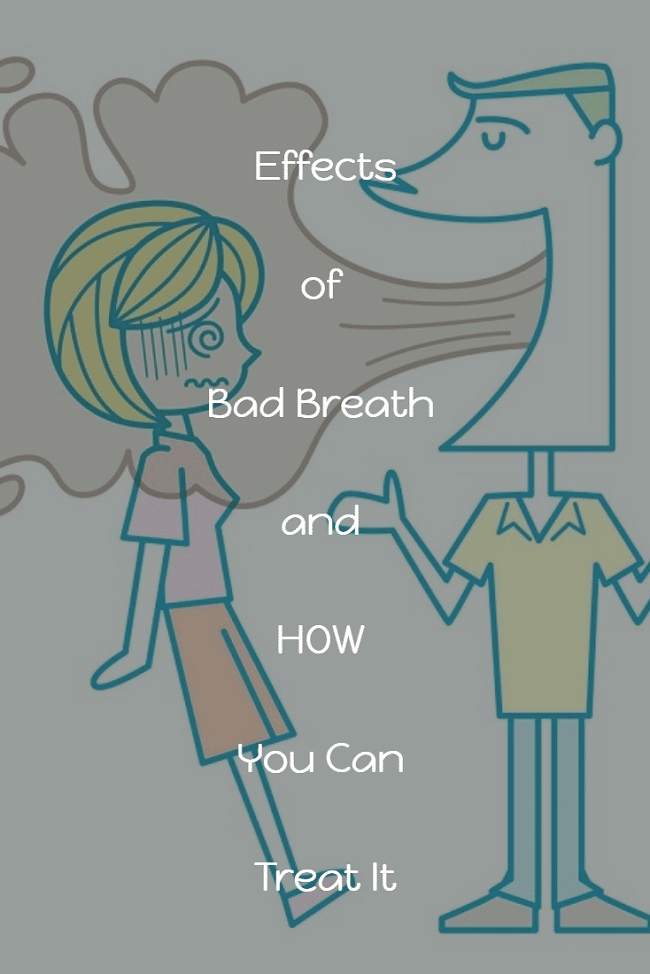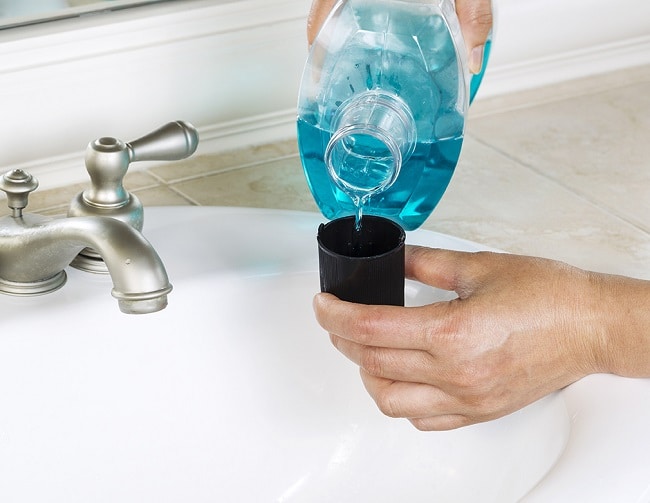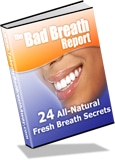
About half of people will have halitosis, otherwise known as bad breath. Most cases stem from problems within the mouth like gum disease, cavities, or ill-fitting dentures. Bacteria build up and cause a foul odor. Bad breath can also be a sign of systemic health issue, like kidney disease or diabetes, or a side effect of a medication. Some common culprits include anti-depressants and blood pressure drugs.
A lot of people think that if you consume foods like onion or garlic or spicy foods, only then they might have bad breath. Yes, you do have bad breath, but it’s short-lived and may not be the sole cause. Halitosis, on the other hand, is a long-term problem, and unless you deal with the problem, you still have it.
Page Contents
Here are 9 causes of bad breath:
-
Bad Hygiene
When you don’t brush and floss your teeth regularly, you let food particles settle in your mouth. The breakdown of bacteria can result in odor. If you’ve had an Invisalign treatment, you may not have been as careful to keep your teeth clean.
-
Dental Implants
Often times, brushing and flossing aren’t enough to keep your dental implants safe from cavities. When food particles are stuck in between your teeth, they begin to produce a terrible odor. And the longer your food is stuck there, the stronger the odor becomes.
-
Infection
Bad breath can be a result of surgical wounds after oral surgery, which may include extraction of wisdom tooth, tooth decay, mouth sores or gum disease.

-
Certain Foods
Remains of food particles result in bad odor due to the growth of bacteria. Strong smelling foods like onion, garlic, and certain spices affect your breath as they digest and travel through the rest of your body.
-
Dry Mouth and Morning Breath
Most chronic bad breath is actually due to dry mouth. And when your mouth does not produce enough saliva, bacteria have a better chance to thrive. Especially when you’re asleep at night, there’s little to no saliva production. This is what causes dryness and morning breath.
-
Cavities
When bacteria and acids remain in contact with your tooth for a longer time, you’re at a higher risk of tooth decay. And this is when cavities start developing. Bacteria, coupled with cavities can turn your fresh breath into bad breath.
-
Throat Infection
Throat infection can result in a sore throat, pain while swallowing, and bad breath. The presence of bacteria can produce an odor. And a throat infection may be linked to bad breath with the increased amounts of microorganisms in the throat.
-
Acid Reflux
Acid reflux is the backward flow of undigested food, stomach acids, and regurgitated bile into your esophagus. And this can lead to bad breath.

How to treat the effects of bad breath:
-
Brush and Floss Twice Daily
Brushing and flossing twice daily will eliminate bacterial plaque that is easily stuck to your teeth. Try to carry your toothbrush and some dental floss to work or while you are traveling. Food rich in caffeine and sugar easily damages your teeth if they are not cleaned. Dental floss helps to clear any food that is stuck between your teeth.
-
Chew Sugar-Free Gum
Chewing sugar-free gum helps. It actually stimulates the salivary flow and saliva actually lubricates the mouth and has an anti-bacterial effect, which is what a lot of halitosis is caused by.
-
Drink Plenty of Water
While drinking plenty of water is beneficial to your overall health, it also keeps your mouth clean and improves your oral health. Many people who face problems like dry mouth and morning breath should skip the sodas and sports drinks, and instead reach out for a glass of water. This way you’re keeping the bad bacteria away and also producing more saliva to wash away remaining food particles.
-
Regular Check-ups with Dentist
Bad breath is usually of major concern. But, it could be a sign of a medical disorder. So make sure you visit your dentist at least once. They may be able to check for signs of diabetes, chronic bronchitis, postnasal drip, local infection in the respiratory tract, gastrointestinal disturbance, liver or kidney ailment.
-
Clean Tongue Properly
A lot of the food that you consume is undigested. And remains of undigested food actually accumulate on your tongue. You’ll also remove any bacteria that cause bacteria.

-
Minimize Intake of Certain Foods
Onion and garlic are the top reasons for halitosis. And people with bad breath should stay away from it. Coffee and alcohol also contribute to the problem. And they create an appropriate environment for oral bacteria to grow. Additionally, they have a drying effect, reducing saliva production and foul-smelling bacteria to stay on.
-
Quit Smoking
Tobacco easily dries your mouth out, reducing saliva production in your mouth. And this leaves a foul smell in your mouth even though you brush your teeth regularly.
-
Use a Mouthwash
While all the above tips will keep your teeth clean and free from bad breath, using mouthwash will also keep embarrassing odors away. Rinsing your mouth with mouthwash will also remove any excess food debris that may not have been removed by a toothbrush and tongue cleaner.
So start inculcating these good oral habits in your daily routine to keep bad breath away. With these tips, you’ll not only improve your oral hygiene but keep your overall health in check. Visit your dentist regularly to detect any concerns early. And if a friend or a loved one mentions there is a problem, get it checked early.

Read more on how bad breath affects your health

Author Bio:
Dr. Anu Isaac, DMD, runs a successful dental practice in Salem, MA. As the founder of Coral Dental Care, she is dedicated to creating healthy, beautiful smiles for her patients and also to educating the dental and non-dental community with her engaging articles on all things related to oral health, recent dental innovations, and latest treatment modalities.


